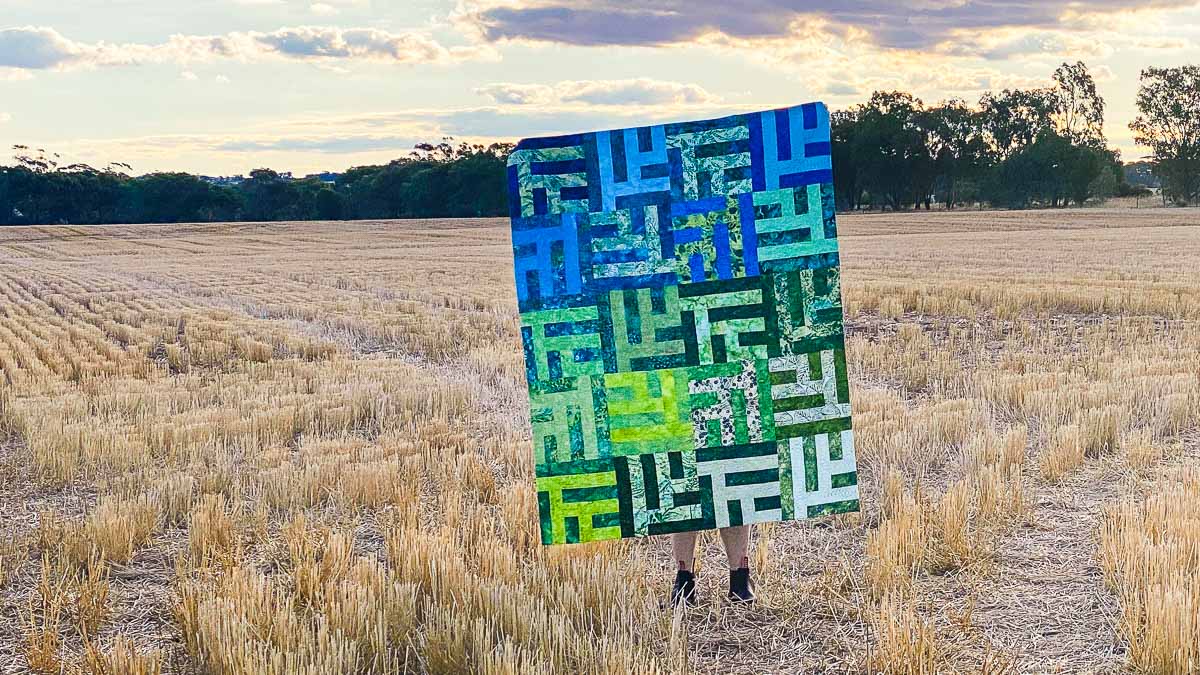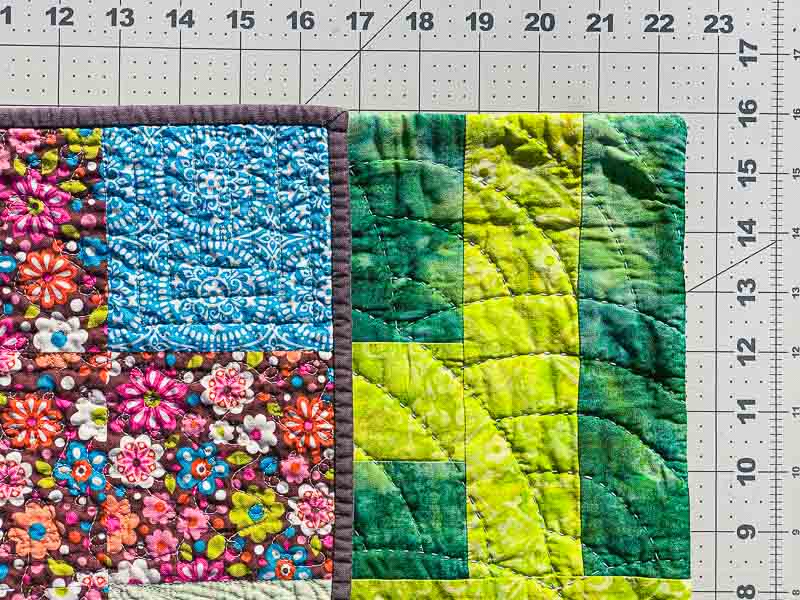
I have always finished my quilts with a traditional binding, a technique I learned decades ago and have used ever since. I like the look of the neat, framed edges, the final step, the finish line.
But recently I finished a quilt and hesitated, for this quilt I knew I wanted the whole quilt top to go right to the edge. A traditional binding would create a visible border, not the look I wanted, So, I decided to explore new quilt finishing techniques.
After doing some research I came across facings. I was already familiar with the concept of facings in garment making but hadn’t considered it for quilts. In the coming weeks I’ll be sharing some of the methods I found.

I wasn’t convinced a facing would hold up as well as a binding or look as clean as I hoped. But curiosity won out, and I set aside my usual binding technique in favour of this new approach.
The image left shows a quilt finished with a traditional binding (left) and a quilt finished with a facing (right).
I found that the process of attaching the facing wasn’t difficult, but it was different and not without challenges. The facing made the edges thicker than I expected and I found it difficult to keep the wide facing strips flat on the back as I was stitching it down, even though I used clips.
I enjoyed taking the time to hand stitch the facing strips to the back as I find hand stitching very relaxing. It was as I was stitching the facing to the back that I started to see the magic of this quilt finishing technique. No framed border, just the quilt itself, floating like a piece of artwork. I think it would be difficult to sew the facing to the back by machine, unless you can incorporate those stitches into your quilting design. Perhaps something to try next time!
Final Thoughts
I was pleased with how clean the quilt finished without the interruption of a binding. The double fold facing made the edges of the quilt thick and I’m undecided on how I feel about that. I don’t know how well the facing will hold up in comparison to a traditional binding, only time will tell, but I’m guessing those thicker edges will wear well.
Would I use a facing again to finish the edge of a quilt? Yes, when I want my quilt design to go right to the edge.
Have you tried this method before? If so, leave a comment, I’d love to hear about your experience!
Until next time, Happy quilting!
FAQs
What is a facing?
A facing is a way of finishing a quilts edge, like a binding, but instead of wrapping around the edge of the quilt, it is folded entirely to the back, leaving a clean, borderless finish.
What kind of quilt should I use a facing on?
This finishing method is often used with modern, contemporary quilt designs and wall hangings. However, I think should not be overlooked as a finishing choice for more traditional quilts.
How do you create a facing?
To create a facing, strips of fabric (facing strips) are sewn to the quilt’s edges from the front and then folded to the back and secured by hand stitching. Unlike binding, the facing stays completely hidden from the front.
Why use a facing?
- Provides a clean, edge-less finish.
- Ideal for quilts where you don’t want a visible binding, especially wall hangings.
- A great alternative if you wanted your binding to match the quilts border but forgot to cut it at the same time - or lost it and can’t find the same fabric! 😳
What are the downsides to using a facing?
- The double layer of fabric makes the edges thicker. You be the judge if you like that or not.
- If you dislike hand-sewing, this method might not be for you.

Great comparison of both methods Sue. I have never finished a quilt top the traditional way, but made simple quilted-top jellyroll snuggle rugs instead (with a fleece backing) for the kids to snuggle into.
That is one awesome-looking quilt
I love how the quilt looks like a piece of art!
I have always been an avid crafter and sewer, but have never braved making a quilt. I can’t wait to learn more.
Your quilt is stunning! Have never tried quilting myself as I’m not the most skilled when it comes to sewing and quilting is like next level. This beautiful piece of quilt definitely inspires me to give it a shot someday.
Such a beautiful quilt! and thanks for sharing FAQs!
Pingback: Joe Cunningham’s Quilt Facing Method | Curious Quilter - The Lab